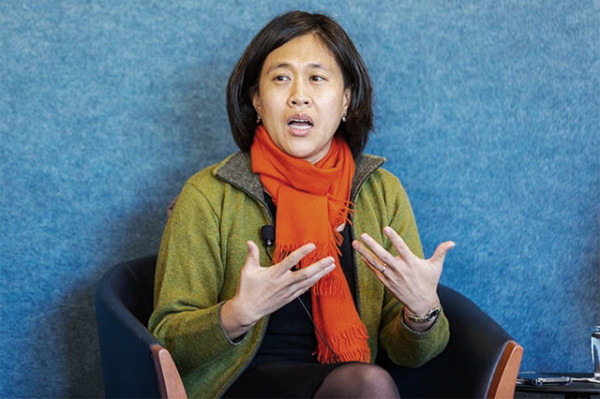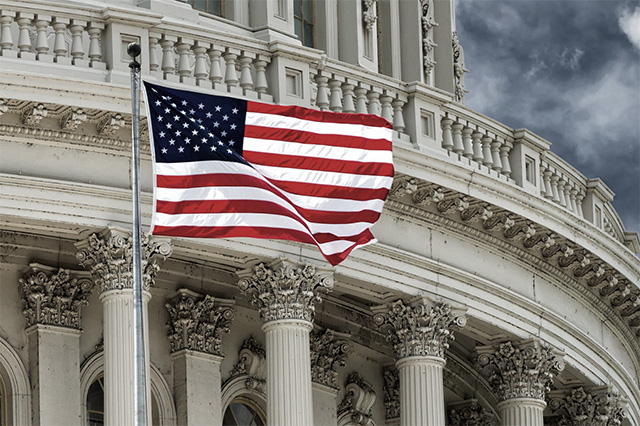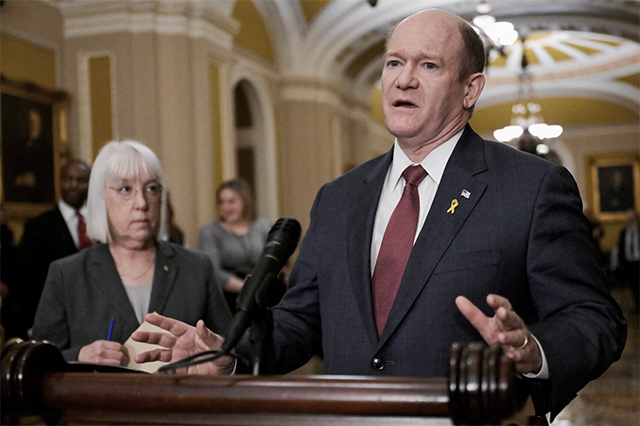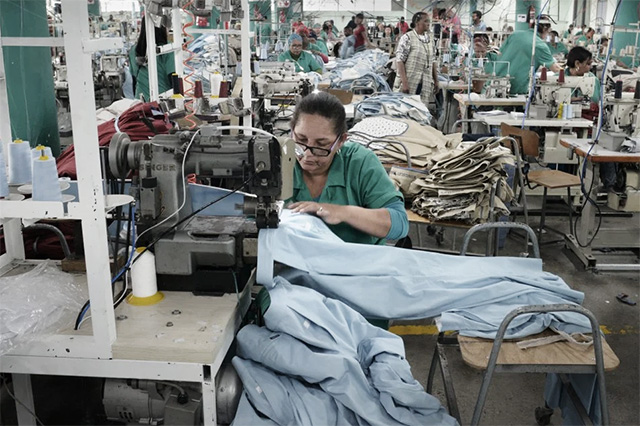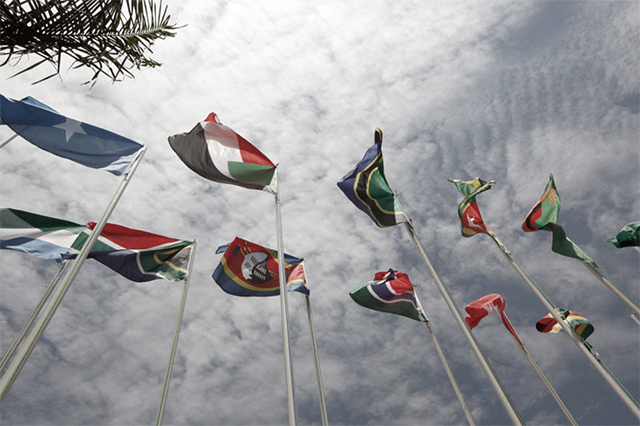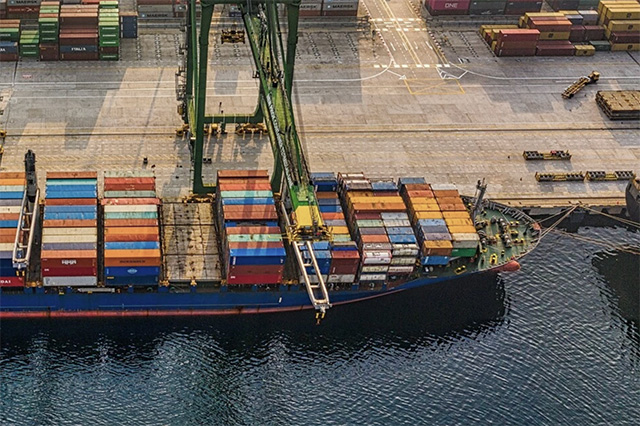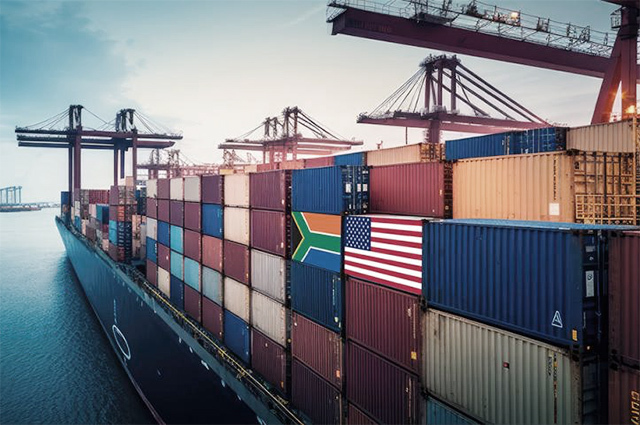How the Biden administration can make AGOA more effective - Brookings
The African Growth and Opportunity Act (AGOA) has served as the cornerstone of the U.S.-Africa commercial relationship for more than two decades but it is set to expire on September 30, 2025.
While the legislation’s unilateral trade preferences have provided economic benefits for countries across sub-Saharan Africa, AGOA as a whole remains underutilized.
To ensure continuity in U.S-African trade ties, the United States must grapple with the legislation’s potential reauthorization now, with a particular focus on how the utilization of AGOA might be improved.
Just a renewal of AGOA won’t be enough to achieve this ambitious vision, however. Instead, the Biden administration should double down on its partnership with AGOA beneficiaries and ensure that each country makes greater use of the program, including through National AGOA Strategies, in a manner that promotes regional and continental value chains.
The analysis below explores these issues further, and includes data regarding Ethiopia, Guinea, and Mali, which are set to lose their AGOA benefits on January 1, 2022 because, as the Biden administration recently determined in a statement to Congress, they are no longer in compliance with the legislation’s eligibility requirements.
AGOA has been more successful where effectively implemented, but remains extensively underutilized
In assessing the program’s future, it is important to acknowledge where AGOA has achieved success. When excluding exports of crude oil under AGOA, the data shows that the program has substantially improved the export competitiveness of certain African products, especially apparel.
For instance, from 2010 to 2020, textile/apparel exports under AGOA grew by approximately 64 percent.
Moreover, apparel exports from Lesotho, Ethiopia, Mauritius, Madagascar, and Kenya have not only led to the creation of tens of thousands of jobs but these countries have become reliable producers for the U.S. market and American consumers.
Lesotho and Kenya in particular have enjoyed the highest AGOA utilization rates: Between 2010 and 2020, apparel products from Kenya accounted for 88 percent of the country’s total exports to the United States under AGOA ($3.6 billion in value); apparel products from Lesotho accounted for 99 percent of the same ($3.2 billion).
The utilization rate is the percentage of U.S. imports under AGOA from a beneficiary country as a share of total U.S. imports from that country.
Heavy manufacturing has also seen some success under AGOA. South Africa’s auto exports to the U.S. under AGOA have created several hundred thousand jobs, directly and indirectly, in South Africa and in the auto supply chain within neighboring countries. Overall, light and heavy manufactured imports under AGOA accounted for 87 percent of all imports under AGOA from 2010 to 2020 (see Figure 1).
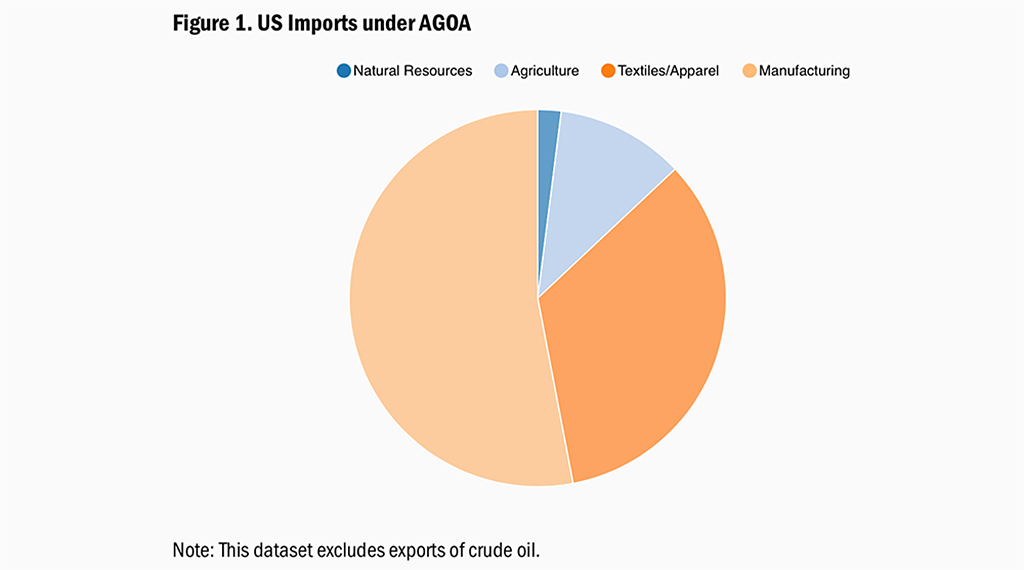
At the same time, not enough African countries have benefited from AGOA on a level that is sufficient to truly tip the scales when it comes to economic development, growth of commercial opportunities, and job creation.
As Ambassador Tai noted during the recent AGOA Ministerial, this trend is partly because utilization of the program remains low for many beneficiaries. In an effort to address this deficit, Congress called for—but did not require—participating countries to develop and publish national “utilization strategies” during the 2015 reauthorization of the legislation.
Countries with national AGOA strategies have increased AGOA utilization
These strategies are prepared by governments in sub-Saharan Africa as part of their planning to enhance the use of AGOA. In developing these strategies, beneficiary countries determine how their comparative advantage can enhance their own competitiveness, which will also benefit regional trade.
The idea behind such plans was that they would position beneficiary countries to take fuller advantage of their preferential access to the U.S. market. A review of trade data suggests that creating AGOA strategies is positively associated with increasing AGOA utilization rates.
To date, only 18 out of the 39 beneficiary countries have developed a national utilization strategy for AGOA. These countries include: Botswana, Eswatini, Ethiopia, Ghana, Kenya, Lesotho, Madagascar, Malawi, Mali, Mauritius, Mozambique, Namibia, Rwanda, Senegal, Sierra Leone, Tanzania, Togo, and Zambia.
Out of the 16 countries reporting data since the publication of a national AGOA utilization strategy, 14 have seen an increase in non-crude exports These increases in exports range from 2 percent to more than 3,000 percent.
In particular, Mali, Mozambique, Togo, and Zambia, which had very low utilization rates, experienced an increase in exports of over 90 percent following establishment of a utilization strategy. Below are relevant examples:
- Kenya published a utilization strategy in 2012. Kenya’s exports to the United States under AGOA subsequently doubled between 2012 and 2020. The largest source of exports during this period was apparel products.
- Ghana published a utilization strategy in 2016. Ghana’s non-oil exports, which include yuca plant root, apparel products, and travel goods, rose by 91 percent from 2017 to 2020.
- Madagascar published a utilization strategy in 2015. Madagascar’s exports to the United States under AGOA subsequently saw a 390 percent increase from 2015 to 2020. Major exports during this period include apparel products, chocolate, and basket-weaving materials.
- Mali published a utilization strategy in June of 2016. Mali’s exports to the United States under AGOA increased by 397 percent from 2016 to 2018. Agricultural and manufactured goods, including buckwheat, travel goods, and musical instruments, made up the largest portion of total exports during this period.
- Mozambique published a utilization strategy in May of 2018. Exports from Mozambique under AGOA saw an 813 percent increase from 2018 to 2020. Agricultural products, such as sugar, nuts, and tobacco, made up the majority of exports over the period.
- Togo published a utilization strategy in August of 2017. Exports from Togo under AGOA saw a 91 percent increase between 2017 and 2020. Agricultural products, including wheat, legumes, and fruit juices, were the largest source of exports during the period.
- Zambia published a utilization strategy in March of 2016. Exports from Zambia under AGOA saw an increase of over 3,000 percent by 2019. Semi-precious stones, pearls, and copper accounted for the largest portion of exports over the period.
Unfortunately, less than half of AGOA beneficiaries have developed national AGOA strategies. With four years left under the existing legislation, there is still time for beneficiary countries to achieve greater results under AGOA.
Moreover, a renewal of AGOA for another 10 years would provide even more time to make national strategies as beneficial as possible while further deepening U.S.-Africa commercial ties.


